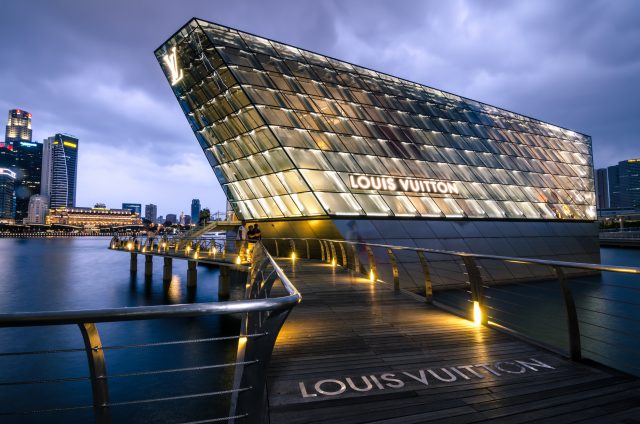This website uses cookies so that we can provide you with the best user experience possible. Cookie information is stored in your browser and performs functions such as recognising you when you return to our website and helping our team to understand which sections of the website you find most interesting and useful.
LVMH now Europe’s most valuable company at over €455 billion
LVMH has been named as the first European company to have a market value of over €455 billion (US$500 billion).

The French luxury company, which owns Moët & Chandon, Krug, Veuve Clicquot, Cloudy Bay and Château d’Yquem in its wine and Champagne sector, and Hennessy, Glenmorangie, Belvedere in its spirits division, saw its stocks lift to reach an all-time high this week.
According to Euronews, LVMH stocks were up 0.1% to a value of €902 by the close of day on Monday night at The Paris Stock Exchange, helping Euronext reach its highest-ever value of 7,581.25 points.
Earlier this month, LVMH reportedly became one of the top-10 best-valued companies in the world and LVMH founder, chairman and CEO Bernard Arnault, who worked alongside Louis Vuitton and Moët Hennessy’s CEOs to form the current company in 1987, is also currently richest person in the world, worth some US$200 billion.
LVMH sales in the first three months of 2023 recently heralded a return to prosperity, however out of all of the luxury company’s interests, its drinks arm Moët Hennessy showed the least impressive results with sales improving by just 3%.
Despite premiumisation of the Champagne marques pushing revenues ahead by 14%, Hennessy Cognac and other spirits saw sales plummet by 5% over the same period.
LVMH shares have doubled in value in the past three years and key to the spectacular results was Asia where in its first quarter figures saw sales grow by 14% compared with a fall of 8% in the final three months of 2022.
The company also highlighted that Japan was up 34% and indicated that it was a prime driver in the quarter given that China accounts for about 80% of its activity in Asia.
At the start of the year, LVMH offloaded one of Margaret River’s founding five wineries, Cape Mentelle, to Australian retail and hospitality business Endeavour Group in a sale which would see Cape Mentelle joining the Endeavour Group subsidiary Paragon Wine Estate. Around the same time, LVMH’s wine and and spirits division Moët Hennessy acquired a majority stake of Provence rosé producer Château Minuty, adding to a premium rosé portfolio that already includes Château d’Esclans.
These moves followed its acquisition trail last summer when LVMH acquired Napa Valley’s Joseph Phelps Vineyards, which had previously operated under the stewardship of the Phelps family for almost five decades. Speaking about the acquisition, Moët Hennessy CEO Philippe Schaus admitted: “It’s important for us that we are acquiring a family business with a legacy and heritage. It’s super important that we keep that heritage.”
Taking family values and legacy into account, now Arnault is in his seventies, there is much speculation in the industry for him to consider LVMH’s next potential successors and, looking at his five children who all already hold senior positions within the company, his eldest daughter Delphine being rumoured to be the most-likely candidate to fill his shoes. That said, last year, it was suggested that Arnault could potentially remain at the helm of LVMH until he reaches 80 after Reuters reported, citing company filings, that LVMH was looking to raise the age limit for the position of chief executive to 80 at a shareholder meeting.

